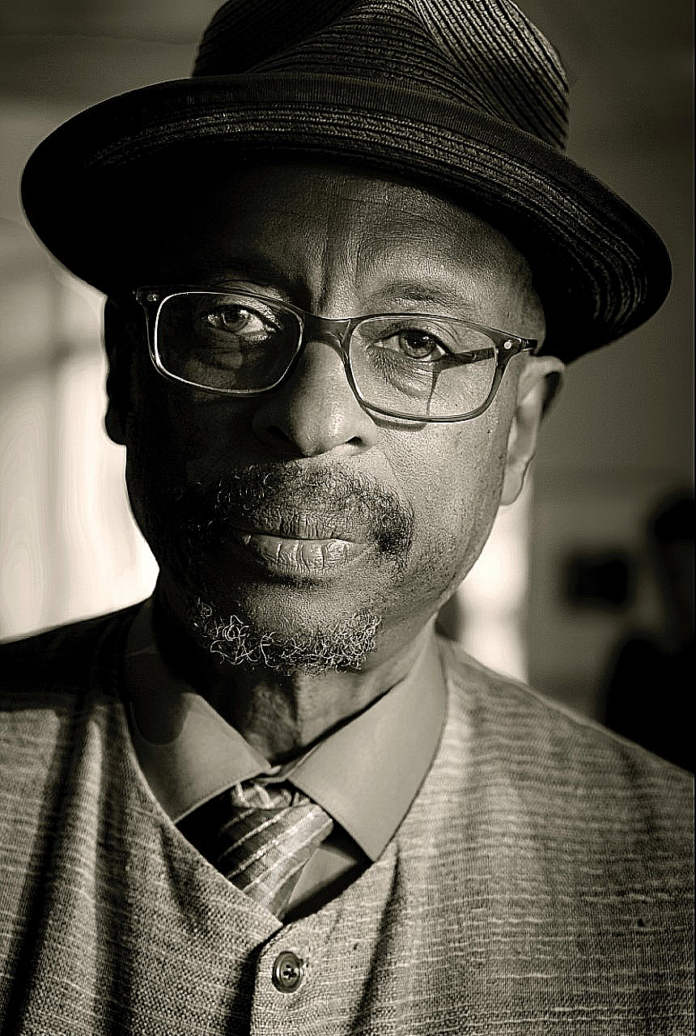Social historian Vincent Harding often felt it was best to describe Black history as being much like a river, flowing toward freedom and the delta of democracy. The challenge we face today is how to navigate this river. Our inability to do this too often leads us to compare historical incidents and movements to one another. We see a protest or a riot and we immediately compare it to the 60s. Why should one be surprised by police brutality in the Black community? Hasn’t there always been one historical moment flowing into the next?
Is This the History of Air?
I can’t breathe” he said.
But there was no air.
Only the absence of trees
and rope. The swaying
of history over another
Black body.
I wrote this poem in 2014, after Eric Garner (a horticulturist) was killed in New York City by the police. I could have written it in 2020. Not much has changed. It’s as if God has returned, and we can’t find the fig leaf or the lie. Maybe somewhere there is conjuring being done, forcing a president to hold a Bible upside down.
The first month of this year should have warned us that the unexpected was going to happen. Many people around the world couldn’t believe it when Kobe Bryant died. January 26th. A sad day, a death in the global family. It didn’t get any better when COVID-19 appeared. Suddenly the entire world collapsed as if it had been unplugged from the Internet.
So much death these last few months, too many jobs lost and never coming back. We have become people of masks and gloves. There was no more basketball after Kobe. Could we have predicted our predicament? Could the COVID-19 pandemic have been avoided? It’s difficult to place blame, but one can point fingers. The Trump White House has been a tsunami, sweeping away the achievements and priorities of the previous administration. In many ways, it was the initial crack of a door that has since opened onto a global paradigm shift. The government of Brazil has become a sad replica of our own as a result of its conservative leadership.
Racism will always seek a vacuum. Recent weeks and months have revealed the extent to which people of color are at heightened risk of contracting COVID-19. It has been difficult to hide our discontent and anger at the Trump administration for that, too. It is just one of the many ways we have been held hostage by the Trump base—as if our nation decided to forget democracy in favor of being ruled by a small minority and its king.
If the United States has been turned upside down and the paradigm has shifted, we must recognize that Black people and the Black Lives Matter movement are responsible—responsible for encouraging a new generation of white people who are moving beyond mere dialogue on race matters and trying to do something concrete. We are all now engaged in policy, even while continuing to protest. This requires a different type of muscle to navigate the river of possibilities. There are boulders before us and jagged rocks.
As a writer, my first concern is always with language and how we compose a narrative. Too often there is no time to workshop politics like poetry. The result is that we take a slogan on a poster and try to define it as policy. When I heard “Defund the Police,” it made as little sense to me as when I heard calls for abolishing police departments. Really? I remember talking to some inmates in a prison many years ago. I reminded them of the need to change their consciousness when they return to their communities. We have to understand that we live in a world in which police are needed. How many of us can recall the debate about whether police should be permitted to wear cargo pants? Try being a police officer and placing all the equipment you need around just your waist. Do we now replace our police force with RoboCops as a way of getting around police unions?
Shifting money from police departments to other needs and concerns won’t easily happen. The money won’t be spent; it will sit or be wasted. Just look at the Pentagon. How much waste each year? Even so, propose to cut the defense budget, and listen to the howls of protest. Will we spend the money on something else? No. Instead, we keep increasing the budget. Why? Because slogans too easily become shields. Someone shouts, “Support Our Troops,” and you can’t get people to think about anything else. This is where we are with “Defund the Police.” It makes perfect sense when one reads the small print, such as what comes when you change credit cards. But no one has time to read the small print anymore. We want change without the complexity of change. We want our posters to speak like a tweet.
But how do we ensure that the more perfect union our nation is supposed to aspire to doesn’t end in divorce? How do we police tenderness into our lives? How do we end the police brutality against Black people and also stop the stones thrown at the hearts of police? How did we become so black and blue, so separated, so occupied? How do we rise from all this kneeling? How do we walk together? Tell me there will be joy in the morning and another Black mother will not have to weep. Tell me it’s time we defund her crying and stop this river of tears.
E. Ethelbert Miller is a literary activist and author of two memoirs and several poetry collections. Miller’s latest book If God Invented Baseball (City Point Press) was awarded the 2019 Literary Award for poetry by the American Library Association’s Black Caucus. He has also written for the American Scholar. Published with permission from author, E. Ethelbert Miller.











